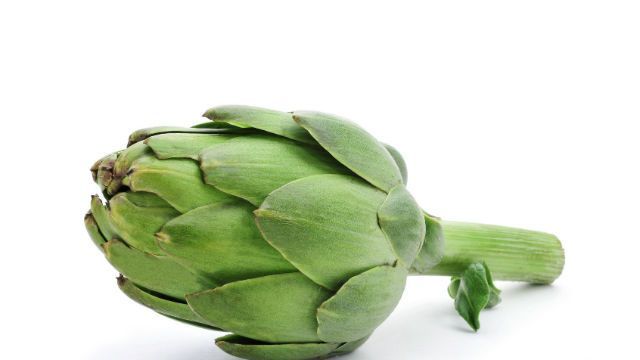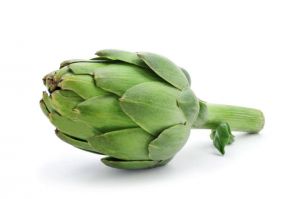
The artichoke, an ancient vegetable hailing from the Mediterranean, is actually the immature bud of a large thistle in the sunflower family.
This spiky delight contains pointed leaves surrounding a heart, which is the part of the artichoke most commonly eaten.
Besides being delicious, artichokes contain a wide array of nutrients. One of their most notable benefits, known to numerous cultures for hundreds of years, is their ability to cleanse the liver and purify the blood.
While this is no secret in traditional remedies, modern science is just recently catching up to the knowledge that artichokes can indeed be highly beneficial to the liver.
Researchers have attributed the liver-cleansing properties of artichokes most especially to two phytonutrients: cynarin and silymarin. Cynarin is an antioxidant compound which aids the liver in producing bile.
Bile is important for the digestion of fats, as well as for flushing toxins out of the body. Silymarin is a flavonoid that aids in the protection of liver cells and cell membranes. Both of these compounds help to regenerate liver cells.
Artichokes also benefit the liver by protecting it against hepatotoxicity (liver toxicity), and the detrimental effects of alcohol, processed foods and other pollutants. This is not to say that eating artichokes means that you’re free to eat all the junk food you want, or drink an excess of alcohol. However, if you have lived a less-than-healthy lifestyle and want to make a fresh, healthy start, artichokes can be an integral part of a liver detox plan.
Along with detoxifying the liver, artichokes can also be instrumental in bladder and gallbladder detoxes, and have been used for this purpose for generations in various cultures.
They contain natural diuretic properties, aid in digestion due to high fiber content, and can help to lower LDL ‘bad’ cholesterol levels in the blood, making them a heart-healthy food.
Aside from cynarin and silymarin, other antioxidants found in artichokes include beta carotene, quercetin, lutein, rutin and gallic acid. This combination helps to fight inflammation and protect against a wide range of chronic diseases.
Artichokes also contain calcium, fiber, iron, magnesium, phosphorus, potassium, B-vitamins, vitamin C and vitamin K, to name only a few of their nutrients. Due to their rich antioxidant and nutritional content, artichokes can protect brain, eye and bone health, as well. Some research has found that the compounds in artichokes may have some potent anticarcinogenic potential.
When choosing artichokes, make sure to select ones that are fresh-looking and green, with no brown spotting or wilted leaves. Along with the hearts, the flesh at the bottom of the leaves is also nutrient-dense.
 Both the hearts and leaves taste delicious steamed with a little grass-fed butter and a sprinkling of sea salt. You can also steep the leaves in boiling water to make an artichoke tea.
Both the hearts and leaves taste delicious steamed with a little grass-fed butter and a sprinkling of sea salt. You can also steep the leaves in boiling water to make an artichoke tea.
Note: If you are planning on beginning any kind of detox regimen, it is best to consult a natural health professional first to make sure that you proceed safely for your individual health. If you have any form of liver, kidney or gallbladder disease, talk to a health professional before consuming artichokes, as they may exacerbate certain types of these conditions.
-The Alternative Daily
Sources:
http://www.epicureantable.com/articles/aartichoke.htm
http://www.nutrition-and-you.com/artichoke.html
http://www.3fatchicks.com/6-health-benefits-of-artichokes
http://whatscookingamerica.net/History/ArtichokeHistory.htm
http://www.lef.org/magazine/mag2011/nov2011_the-amazing-artichoke_01.htm
http://undergroundhealthreporter.com/benefits-of-artichokes#axzz2vZkzOnN8

